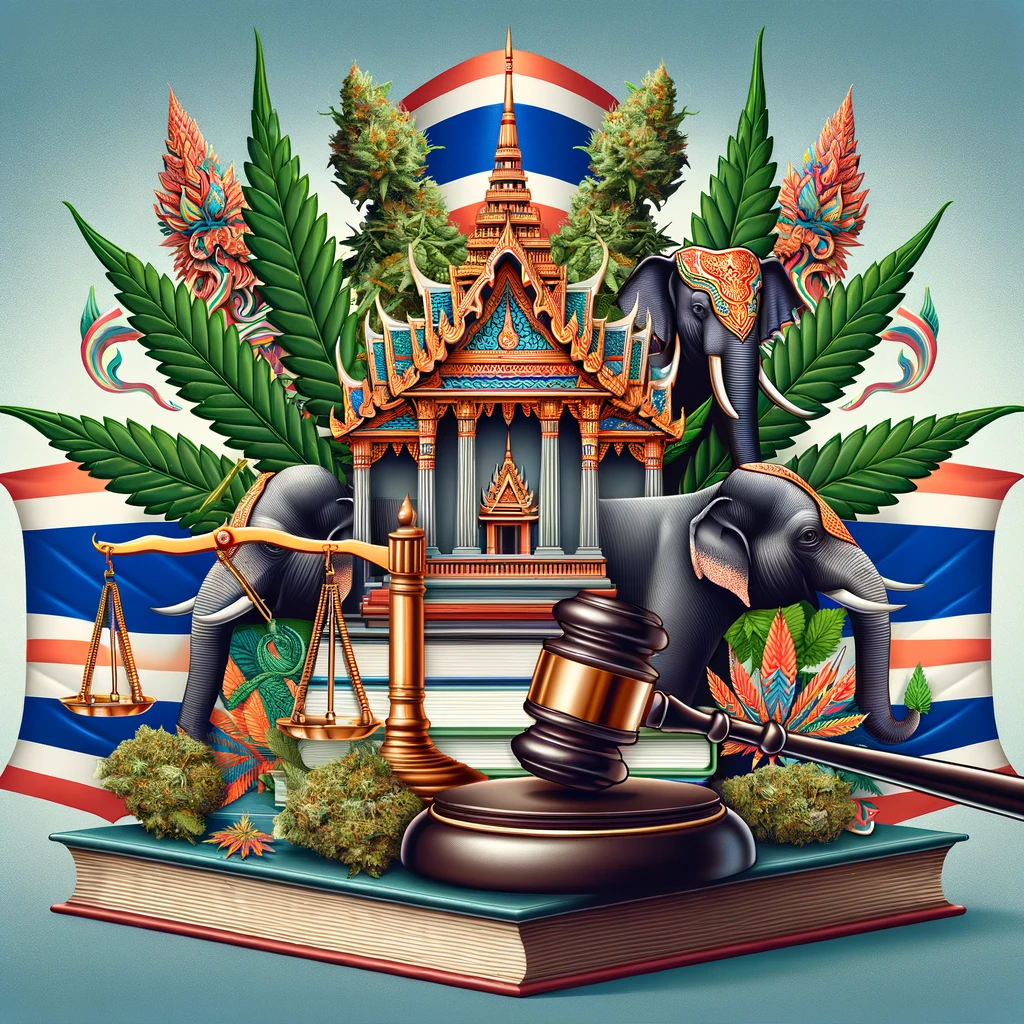Thailand stands at the forefront of cannabis legalization in Asia, having introduced progressive laws that distinguish between medical and recreational use. For tourists and businesses like ‘How High,’ a premium cannabis dispensary in Koh Samui, navigating these laws is essential for compliance and enjoyment. This article outlines the legal framework governing cannabis in Thailand, emphasizing critical information for consumers and suppliers alike.
Understanding the Legal Landscape
Historical Context and Recent Changes
The journey towards legalization began with the criminalization of cannabis in 1935, evolving significantly with the legalization of medical marijuana in 2018. This move positioned Thailand as a pioneer in Asia for cannabis policy reform. In 2021, the government further liberalized its stance, allowing the cultivation and consumption of cannabis with specific conditions, notably, the THC content.
Key Legal Milestones:
- 2018: Medical cannabis legalization.
- 2021: Decriminalization of cannabis extracts containing less than 0.2% THC.
Current Regulations for Tourists and Residents
- Age Restrictions: Only individuals aged 20 and above can legally buy, possess, and use cannabis.
- Public Consumption: Smoking cannabis in public is a punishable offense, aligning with the Public Health Act 2535 BE (1992).
- Medical Use: Requires a prescription for products containing over 0.2% THC.
- Recreational Use: Remains illegal under current laws.
Detailed Legal Guidelines
Possession and Cultivation
- Import and Export: Strictly prohibited for seeds and plant parts.
- Cultivation Registration: Mandatory through the “PLOOK GANJA” application or the government website.
- Cannabis Extracts: Only legal if containing less than 0.2% THC without special permission.
Consumption and Use
- Medicinal Cannabis: Accessible through prescription for products over 0.2% THC.
- Recreational Cannabis: Still classified as illegal.
- Industrial Hemp: Permitted for use in products with less than 0.2% THC.
Distribution and Supply
- Regulated Supply Chain: Thai law protects local businesses by restricting foreign entities from the cannabis market.
- Cannabis Dispensaries: As of 2023, Thailand hosts over 6,400 approved dispensaries, showcasing the expansion of medical cannabis accessibility.
The Role of ‘How High’ in Thailand’s Cannabis Market
‘How High’ operates within this legal framework, offering a variety of cannabis products that comply with Thai laws. Our commitment to quality and customer service ensures a safe and enjoyable experience for both recreational and medical consumers.
Services Offered:
- Diverse Product Range: Includes flowers, hashish, edibles, and smoking accessories.
- Educational Resources: Providing information on safe and legal cannabis use.
The Future of Cannabis in Thailand
With the government’s recent initiatives to refine cannabis regulations, the focus remains on medical use, aiming to curb recreational consumption. The proposed cannabis bill, expected to be submitted by December 2023, will introduce stricter cultivation guidelines and criminal penalties for unauthorized use. This legislative evolution reflects Thailand’s commitment to leveraging cannabis for medical benefits while controlling its recreational use.
Economic Impact
The liberalization of cannabis laws has paved the way for a burgeoning industry, with the potential to reach a valuation of $1.2 billion by next year. This growth signifies the economic and therapeutic opportunities that cannabis legalization presents for Thailand.
Conclusion
Navigating the legal intricacies of cannabis in Thailand is crucial for both tourists and businesses. With laws distinguishing between medical and recreational use, entities like ‘How High’ play a vital role in educating consumers and providing legally compliant products. As Thailand continues to refine its cannabis policies, staying informed and adherent to regulations is imperative for participating in this evolving market responsibly.
Sources


